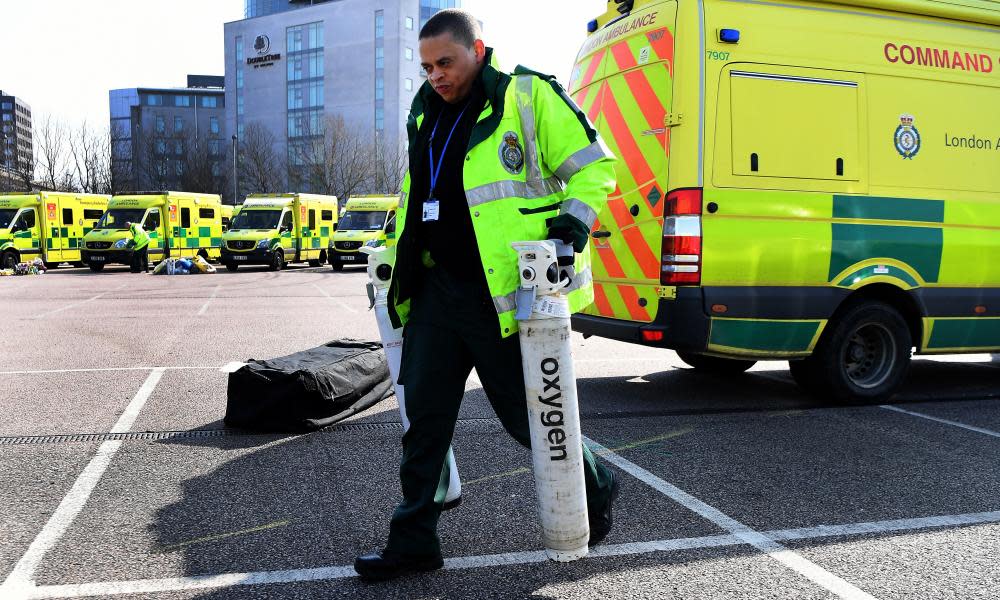Coronavirus patients in UK intensive care have 50% survival rate

The mortality rate for patients put in intensive care after being infected with Covid-19 is running at close to 50%, a report has revealed.
Data from the Intensive Care National Audit and Research Centre (ICNARC) showed that of 165 patients treated in critical care in England, Wales and Northern Ireland since the end of February, 79 died, while 86 survived and were discharged. The figures were taken from an audit of 775 people who have been or are in critical care with the disease, across 285 intensive care units. The remaining 610 patients continue to receive intensive care.
The high death rate raises questions about how effective critical care will be in saving the lives of people struck down by the disease. As a top priority, the NHS is opening field hospitals in London, Birmingham and Manchester, which will incorporate some of the biggest critical care units ever seen in Britain.
“The truth is that quite a lot of these individuals [in critical care] are going to die anyway and there is a fear that we are just ventilating them for the sake of it, for the sake of doing something for them, even though it won’t be effective. That’s a worry,” one doctor said.
The report also found that though the majority of those who have died from coronavirus across the UK were over 70, nine of the 79 who died in intensive care were aged between 16 and 49, as were 28 of the 86 who survived.
The audit suggested that men are at much higher risk from the virus – seven in ten of all ICU patients were male, while 30% of men in critical care were under 60, compared to just 15% of women. Excess weight also appears to be a significant risk factor; over 70% of patients were overweight, obese or clinically obese on the body mass index scale.
The grim statistics were made public as a Tory MP who works in the NHS said that frontline health service staff who had no symptoms of Covid-19 but who might still be infected should be included among those to be tested to prevent the crisis getting worse.
The former health minister Dan Poulter, who works as a psychiatrist in wards with many cases of the virus, says widespread testing could be a “game-changer” that would prevent staff who are asymptomatic carriers of the virus from passing it on to patients in hospital for other reasons.
Related: My NHS colleagues are committed but we are at maximum stretch
Widespread testing of those who are self-isolating with mild symptoms would also allow them to get back to work if they tested negative.
Writing in the Observer, Poulter says: “NHS staff sickness levels are already high, and they are only going to increase as the Covid-19 outbreak intensifies.
“Many of us are also worried that we may be infected, yet asymptomatic (showing no symptoms) and therefore could be a potential risk to our patients, colleagues and families. That is the last thing that we would want, but we simply do not know.
“Widespread NHS staff testing would be a game-changer and would help NHS clinicians to both protect our patients and return to the front line faster.”
He says a lack of testing so far is causing medical staff to stay away from work with relatively minor symptoms which are probably not Covid-19 related, such as a sore throat, for fear they may have the virus. If they were to test negative they could return to work.
Michael Gove, the cabinet office minister, said on Friday that extra testing would be carried out on NHS staff from this weekend. But he made it clear that this would initially be directed only at key NHS staff and care workers who were self-isolating. Many doctors, nurses and other staff want it extended to all frontline staff.
Poulter suggests also that the government should be asking senior doctors for advice on how the pandemic will play out in hospitals, rather than relying only on experts who work away from the frontline.
“We have many such clinicians already in senior leadership roles in hospitals throughout the country,” he says. “It’s time to better utilise their knowledge and experience.”

 Yahoo Movies
Yahoo Movies 
